22nd June 2022 – Rare Revolution Magazine Article
RARE INSIGHTS
Child Youth Care Zimbabwe: Improving the lives of Zimbabwean RARE families—one step at a time.
– By Geoff case
“Child and Youth Care (CYC) Zimbabwe is a Zimbabwean non-profit organisation working hard to improve the lives of patients with rare diseases in Zimbabwe. RARE Revolution had the pleasure of interviewing its founder, Trudy (Kawome) Nyakambangwe, and we heard of the challenges the rare disease community faces in Zimbabwe and how CYC is driving change through its advocacy, awareness-raising, practical support and research”
A personal tragedy led Trudy to journey into the rare disease space
Trudy’s journey into rare disease began with the tragic loss of her first son. Two days after birth, his head began to swell massively. His doctors knew that he was bleeding but didn’t diagnose that he had haemophilia. Although that diagnosis would come later, it was not possible to ascertain which type of haemophilia he had. There just wasn’t the capacity for this testing within Zimbabwe. Sadly, after immunisation was injected into his thigh, Trudy’s son bled internally, went into shock and died. Trudy is now the proud mother of two children who are now young adults. In the knowledge that her daughter may be a carrier of haemophilia, Trudy became determined to put her daughter in a stronger position to deal with the condition than she had been. So, she founded a patient organisation called Child Youth Care Zimbabwe.
“When we started the organisation, we were only concerned about haemophilia. But, working in the rare disease space, you come across other families with different conditions, and these families living with rare diseases are so isolated because of their small numbers. There is a high mortality rate for young children in my country as a result of a rare disease. With my own loss, I know how important it is to come together and create a safe space where you can discuss lived experiences and comfort each other”.
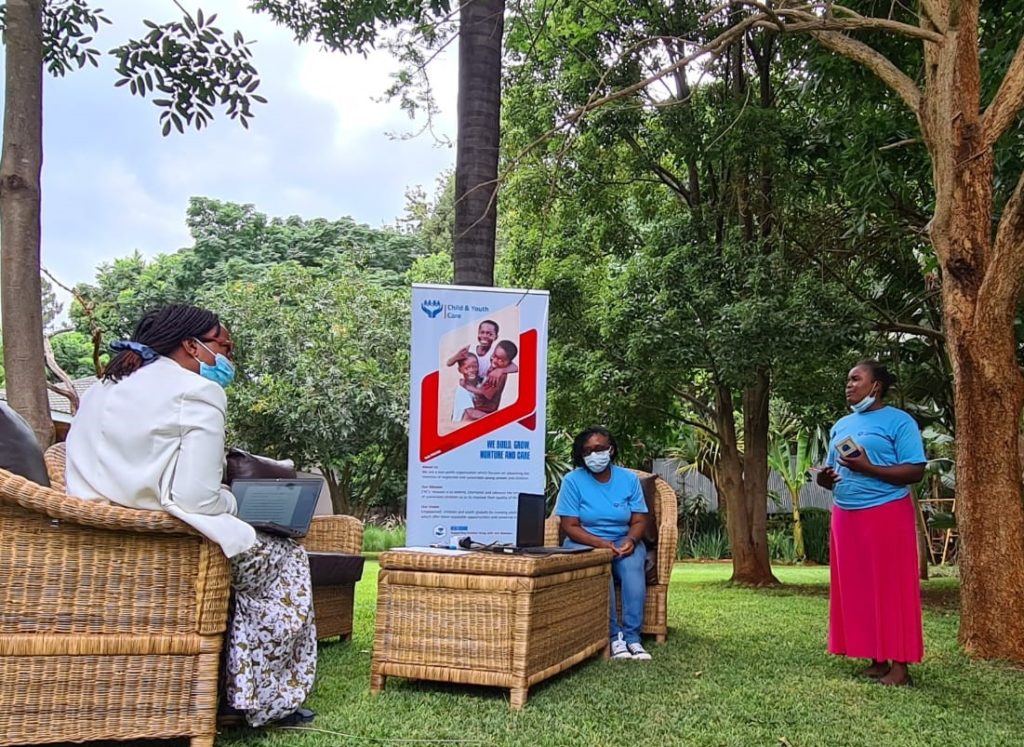
The challenges for the Rare Disease community in Zimbabwe
Trudy describes the formidable challenges faced by the rare disease community in Zimbabwe: the voices of the community are simply not being heard by stakeholders; access to lifelong medication is challenging; there is widespread stigma around the inherited disease, and there is insufficient knowledge among healthcare professionals.
“The government in Zimbabwe does not have a strategic plan for families living with a rare disease. There is limited recognition that there are rare diseases, and that policy is needed to create a structure to support patients with rare diseases. Ministers prioritise prevalent diseases like malaria. But we think people with rare diseases have a right to life and the right support.” – Trudy
People in Zimbabwe rely on private health insurance, but companies will not insure a patient with a rare condition as they perceive the risk and costs as too high, making the cost of lifelong medication for individuals prohibitive. “They either have to pay themselves or virtually beg others for help.” Much of the support for rare disease patients in Zimbabwe—including access to medication—currently comes from international, disease-specific organisations. “That kind of support is highly unreliable and not enough.”
Unfortunately, the rare disease community in Zimbabwe also faces stigma and discrimination. “Rather than accepting that a child is different, people look to blame somebody—even witchcraft. The stigma and lack of knowledge around genetic conditions mean we often find single mothers looking after a child because the dads have left.” More awareness-raising is needed so that society pulls together and helps these live their lives to their full potential.
Trudy says that the ministry of health and child care has a powerful voice that could be heard in the most remote areas and educate people. If there were a national programme from the ministry to educate people about rare diseases, the message would reach people even in the most remote areas and they would listen, reducing stigma and discrimination.
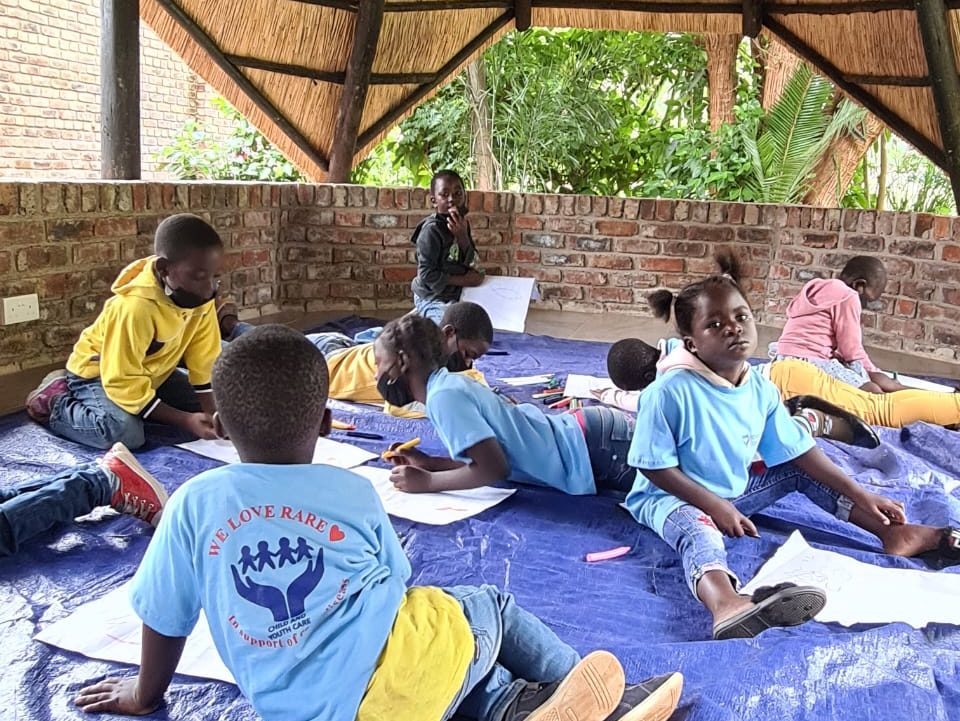
Child and Youth Care Zimbabwe: meeting the challenges
Trudy approached stakeholders at different levels, including health professionals, hoping to highlight the plight of people with rare diseases but soon found that policymakers didn’t even realise the rare disease community existed. Her organisation is now working hard to identify patients with rare conditions to prove they do exist.
“We want to get the statistics to show we are here in numbers so that we can make our voice heard.”
Other communities with non-communicable diseases, such as those with diabetes and hypertension has not been well supported in the past, and they are also competing for attention and resources. “Proving there are many of us, will help the rare disease community get the kind of recognition that they get, so we are busy documenting patients, as well as supporting them in any way we can.”
Finding the patients to collect the data has been really challenging. Occasionally, patients are referred to CYC by paediatricians, but usually, the organisation reaches out through social media platforms to find people with specific conditions. Fundraising events for patients and reaching out to medical associations have helped, too.
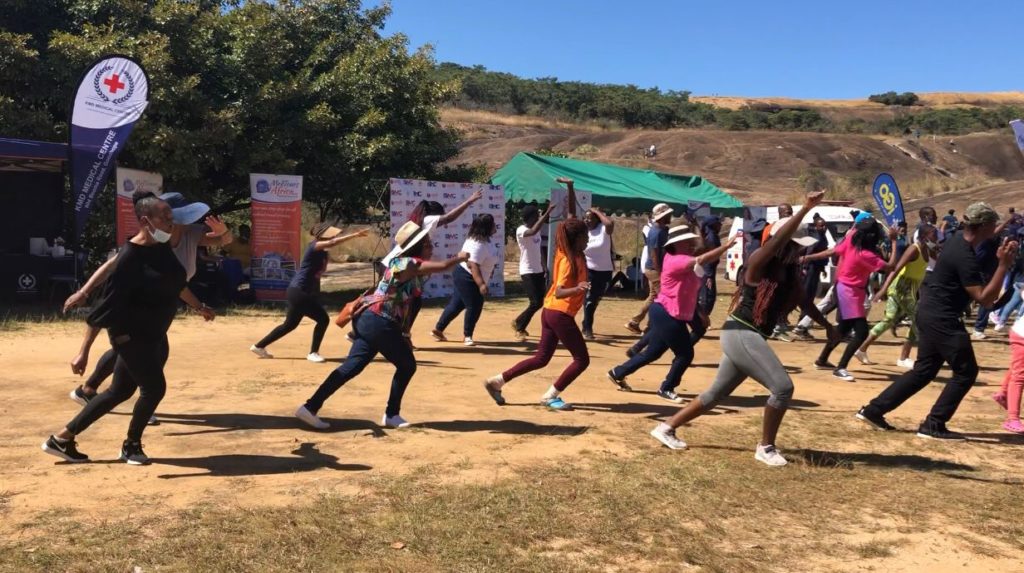
Following a referral, CYC arranges a needs assessment at the patient’s home to document the issues affecting them. The assessment includes evaluating the accommodation, the medical needs of the patient and the financial challenges the family faces. If the patient is a child who is old enough to participate, they are also listened to. The resulting information helps Trudy’s team to create a pathway for that individual’s needs. “There is no one-size-fits-all method. Some families will want medication; some will want surgery. Even if it’s the same condition, they’ll ask for different things, and we’ll try and support them as much as we can.”
The tailored support that Child and Youth Care Zimbabwe brings to a family is critically important. For instance, Trudy’s team has supported patients with congenital adrenal hyperplasia (CAH), for whom they have set up a support organisation, sourced medication from an organisation in Australia and eased logistical issues. Sadly, however, CYC cannot always afford medication for everyone, and children with CAH can deteriorate quickly: “In the last two years, we have lost two children to CAH and another child to COVID-19.”

Usually, the financial burden is heavy on families where there is a diagnosis of a rare disease, so CYC tries to enable humanitarian support for the families, particularly to meet the cost of school fees, for the patients or even the siblings. “We approach friends and family for help. Of course, it’s not a sustainable way to support rare disease patients because their conditions are complex. We need a more structured way of assisting them.”
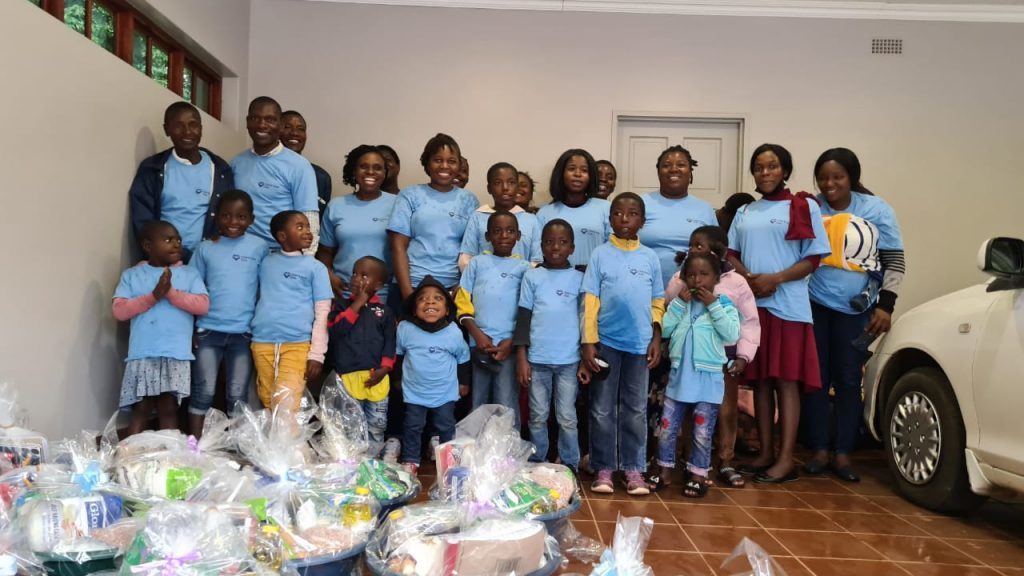
“CYC is using a survey to build its understanding of the healthcare landscape in
Zimbabwe and the place of rare disease patients within it. The survey explores the
level of knowledge that HCPs have about rare diseases, the documents that guide
them, the medication that patients can access and the health pathways that
patients will follow when they become unwell. “Those pathways are important. We can’t expect the whole hospital to know about rare disease patients, but we could, for example, have a dedicated ward for them.”
“The results of the survey will be shared with the ministry of health and child care so the issues affecting the rare disease community are recognised. “We think we will be able to get support within the existing resources—tight though they are. We hope the ministry will realise not enough has been done and it will try to make a difference through improving training for HCPs and raising awareness.”
It will take time to achieve systemic change, but CYC is already instigating smaller-scale improvements that will benefit patients. “We are trying to identify doctors who can work with our patient groups. Even if there isn’t any medication or any therapy, a doctor who is interested in the condition and the research around it could be attached to the group and then raise awareness with colleagues. This could generate interest and improve the support for these patients within the healthcare system.” It is difficult to find doctors who have the time and genuine interest to be able to volunteer their time in this way, but there is great potential here. “Our patients don’t want to have to explain their condition and situation every single
the time they visit a doctor,” says Trudy.
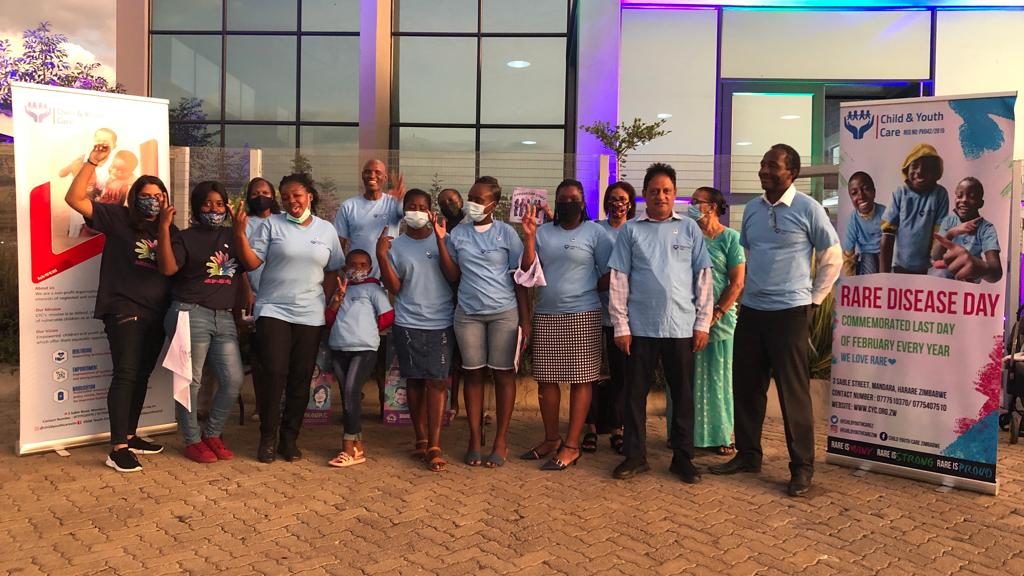
Hopes for the future
“The healthcare landscape in Zimbabwe creates many challenges for patients with rare diseases. Trudy knows that these cannot be overcome immediately but believes they can be“one step at a time, one message at a time”
Longer term, Trudy hopes for a higher level of patient education and for patients to have the opportunity to participate in research. Her greatest hope is that patients will have access to genetic testing. This would be transformative in bringing diagnoses and treatments to patients.
“These things will eventually come, but right now our struggle is recognition: we have to get society, healthcare professionals and the government to recognise our community. Communicable diseases like malaria, tuberculosis and HIV have always been in the foreground here, and much has been done to mitigate against them. Now in the non-communicable diseases space, we have hypertension, diabetes and mental health. We’ve seen the effects of not taking care of these and how the health system has been forced to pay attention. So, maybe in the future, rare diseases will be recognised too.
TURNING THE TIDE FOR RARE DISEASE
Rare Revolution magazine is published by NRG Collective Ltd, a not-for-profit media company specialising in rare disease content.
